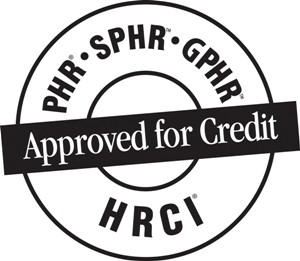
By: Tonya Mead, CFE, CHFI, PI, MBA,MA Educational Psychology
Course Number and Activity ID #324488, Setting up an Administrative Investigation Program has been developed by Shared Knowledge, LLC an HRCI Approved for Credit Program.
Participants of this activity will receive 2.0 hours of Continuing Education Credits to be applied toward Senior Professional in Human Resources (SPHR), Professional in Human Resources (PHR) and General Professional in Human Resources (GPHR) Certifications.
Areas of Applicability
- Business Management and Strategy
- Employee and Labor Relations
- Risk Management
This training has been developed to meet the requirements of other Certification Programs. Upon registration and completion, students will be awarded a Continuing Education Certificate to demonstrate knowledge attained as indicated in the course objectives.
Presenter Executive Biography
Ms. Mead has more than 20 years advising executive leadership in state government, small business owners and nonprofits in the analysis of resource management, senior leadership, training and compliance, business practices for the identification of deficiencies and operational effectiveness. She is particularly adept at handling complex issues requiring sound judgment and discretion. Ms. Mead transformed the District of Columbia’s reputation for systemic educator misconduct reported in USA Today, Esquire, Washington Post, NPR, and The Atlantic to national leader for state turnaround strategies.
She is the president of Shared Knowledge, LLC a certified small, minority women-owned firm specializing in cyber security and private investigations to support human resources and a recipient of the 2014 Cafritz Foundation Award for Excellence in Government and Public Service for combating fraud and innovative performance management design utilizing information technology. She is a Certified Fraud Examiner and Computer Hacking Forensic Investigator and serves on the Advisory Council, the Association of Certified Fraud Examiners and is a member of the Cooperative Forecasting and Data Subcommittee for the Washington, DC Metropolitan Council of Governments. She has served as the Executive Director, Minority Business Development Center for the New England Region where she facilitated financing and procurement contracts for her clients. She was also the Technical Advisor to small and minority subs contracted with primes to build the $13.0 Central Tunnel Artery Project in Massachusetts which was the largest infrastructure project in the World.
